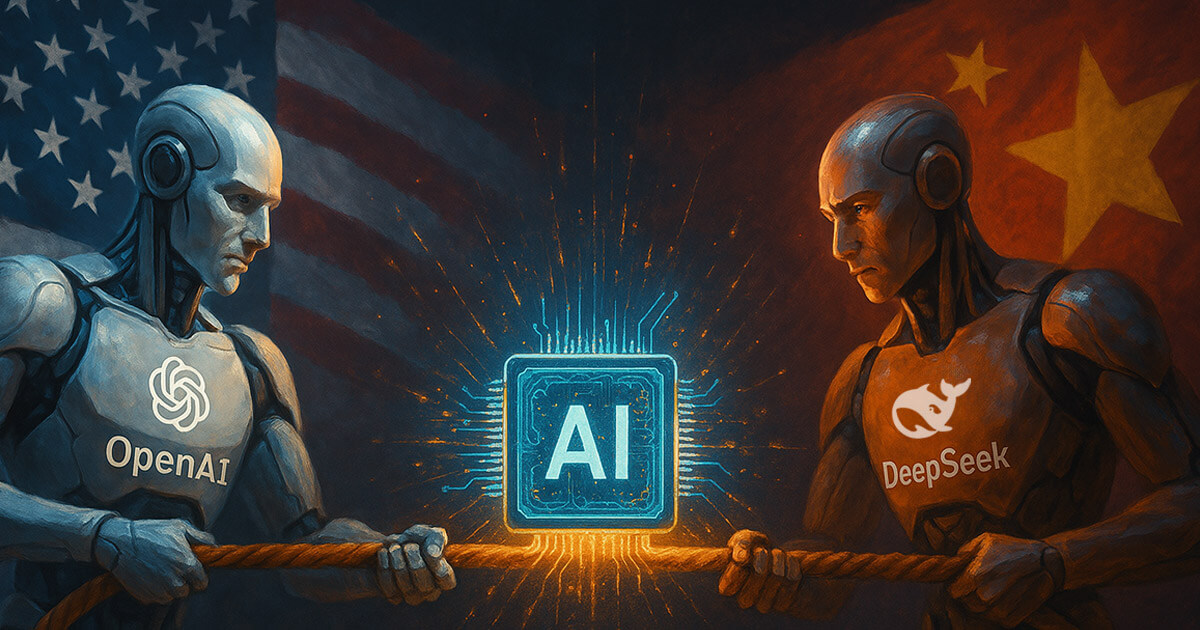OpenAI’s strategy to keep American AI competitive

The following is a guest post from Ahmad Shadid, Founder of O.xyz.
In an era where artificial intelligence dictates global power dynamics, OpenAI is making bold moves to secure America’s dominance in the sector. Its new plan called the “AI Action Plan,” tries to ease the regulatory framework, implement export controls, and increase federal investment to stay ahead of China’s AI expansion.
OpenAI signed a deal with the Trump administration for the new “AI Action Plan” on March 13. The deal revolved around limited regulatory oversight and rapid development of AI in the US.
The proposal highlights a fundamental truth: too much state-level regulation might undermine America’s leadership in AI, even as China’s state-supported AI players — led by DeepSeek — continue to grow rapidly.
Defending AI from censorship
DeepSeek’s R1 model, released in January 2025, performed at the level of top US AI systems — though having been developed at a much lower cost — challenging the American tech giants’ dominance.
This proved to be a major sell-off in US tech stocks, with firms such as Nvidia suffering huge losses. Soon after, the US government raised red flags about national security and data privacy, debating on policy solutions to keep America out front in the very technologies it wrote the rules for.
OpenAI’s approach represents a pivotal point in American AI policy, combining regulatory advocacy with industrial ambition to ensure the US stays on top of the game when it comes to AI. Moreover, at the heart of OpenAI’s plan is an export-control strategy that aims to limit the country’s expanding influence in China.
This will prevent the misuse of AI platforms and technologies by opposing nations. Consequently, the export controls will protect the US national security.
OpenAI’s plan also calls for using federal dollars to explain to the world that American-made AI is safer and that US-based companies should stay ahead of the international AI stream.
DeepSeek is not only a Chinese AI initiative and a commercial competitor but also a fundamental ally of the Chinese Communist Party (CCP). In late January, DeepSeek grew infamous for blocking information on the 1989 Tiananmen Square massacre, riding a wave of screenshots on social media pointing out China’s censorship.
The $500 billion plan
A central part of OpenAI’s pitch is locking in greater federal funding for AI infrastructure. This means ensuring that the high-water mark for American progress in the field of AI does not merely concern protecting what comes next from foreign threats but also reinforces the necessary computational and data infrastructure to sustain long-term growth.
The Stargate Project, for instance, is a joint effort by OpenAI, SoftBank, Oracle, and MGX that will provide up to $500 billion for the development of AI infrastructure in the United States.
This ambitious initiative is intended to cement American AI superiority while producing thousands of domestic jobs — much against the belief of the ‘AI might replace your job’ narrative.
It is a major tactical shift in the approach to AI policy, acknowledging that private sector investments are not enough to remain competitive compared to state-sponsored efforts like China’s DeepSeek.
The Stargate Project wants to ensure the construction of advanced data centers and the expansion of semiconductor manufacturing within the United States to keep AI development domestic in the US.
In its early stages, Federal support for AI infrastructure is critical — both for growing economic competitiveness and for national security. AI-powered features are often used in national defense and intelligence. For instance, Shield AI’s Nova is an autonomous quadcopter drone that uses AI to fly itself through complex environments without GPS to gather life-saving information in combat environments.
Furthermore, AI is also critical in cyber defense against hacking, phishing, ransomware, and other cybersecurity threats because it can identify deviations or abnormalities in systems in real time. Hence, its role in detecting patterns and spotting irregularities helps the US safeguard critical defense infrastructure from cyberattacks, making it all the more important to fast-track AI’s growth for defense.
Battle for AI training models
A key element of OpenAI’s proposal is the call for a new copyright approach that would ensure that American AI models can access copyrighted material for use in their training. The ability to train on a wide range of datasets is vital to keeping AI models sophisticated.
If the copyright policies are restrictive, it could put the US at a disadvantage to their foreign competitors — especially the Chinese ones, which operate among weaker copyright enforcement.
AI tools are evaluated for risk, governance board scrutiny, and compliance verification frameworks such as the House AI Policy and DHS conditional approvals. Although FedRAMP’s ‘fast pass’ may expedite deployment, antennae from the FTC and regulations will keep AI’s purposes on the same shelf as national security policy and consumer protections.
These safeguards, while no doubt very important, often slow the pace of AI adoption in crucial government use cases.
Now, OpenAI, in particular, is lobbying for a partnership between the government and the industry, where AI companies voluntarily contribute their models’ data, and in exchange, they would not be liable to strong state restrictions.
Not an easy road ahead
Though OpenAI’s proposal is bold and ambitious, it poses serious questions about how much regulation can help in driving innovation in this burgeoning sector.
While weakening state-level regulatory oversight will leave room for faster AI developments, there is a significant concern yet to be resolved. The partnership structure of AI organizations with the federal government could create the potential for private firms to exercise outsized power over the nation’s policies on AI and the users themselves.
Regardless of these fears, one thing is clear: the United States cannot afford to fall behind its competitors in AI development. If done right, this partnership could guarantee that American AI stays the dominant framework worldwide rather than yielding ground to foreign government-controlled competitors like China’s DeepSeek.
Mentioned in this article



